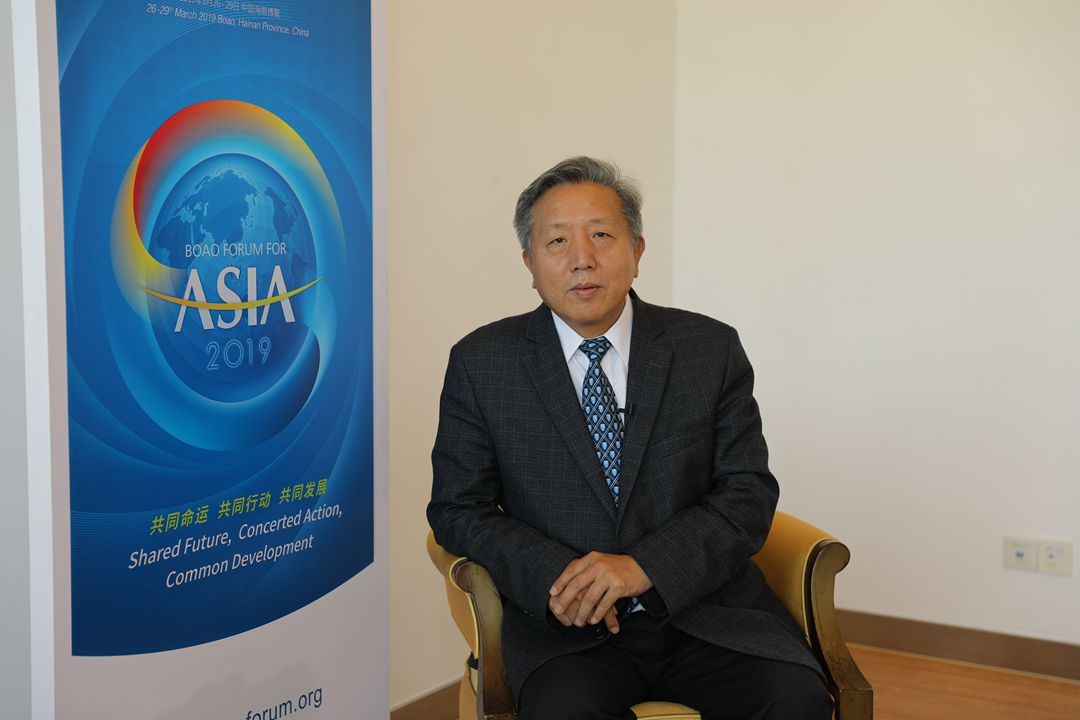
Economy
18:43, 28-Mar-2019
Expert: Put your money in the stock market, not the property market
Updated
12:27, 29-Mar-2019
CGTN
02:41

As the Chinese economy is facing mounting downward pressure, both domestic and international investors are more cautious when making investment decisions. A classic question frequently asked is: Should I invest in real estate or stocks?
"The stock market," according to professor Wu Xiaoqiu, vice president of Renmin University of China, who is also the director of the Finance and Securities Institute of the RUC.
He was not hesitant in his answer during an interview with CGTN on Wednesday on the sidelines of the ongoing Boao Forum for Asia.

Vice President of Renmin University of China Wu Xiaoqiu speaks with CGTN on the sidelines of the Boao Forum for Asia in Boao, south China's Hainan Province, on March 27, 2019. /CGTN Photo
Vice President of Renmin University of China Wu Xiaoqiu speaks with CGTN on the sidelines of the Boao Forum for Asia in Boao, south China's Hainan Province, on March 27, 2019. /CGTN Photo
Stock market rally reasonably
China's stock market has seen a rally since the beginning of the year, which many analysts considered lack the solid foundation of the real economy.
According to Wu, China is shifting from high-speed growth to high-quality development, and the stock market rally shows investor confidence in China's economic transition.
"If China succeeds in shifting from a quantitative expansion-oriented, resource-dependent growth model to a high-quality development model, which can turn out very well, I think it is normal that the capital market has good expectations in advance," he said.
He also said that China shows confidence and want to stabilize the stock market. "Confidence and good expectations are the most important factors for the market," he noted. "Now that the country has them, investors will of course follow suit."
Property tax in focus
Talks of China stepping up the introduction of property tax were a hot topic during this year's Two Sessions, the country's annual political season. It again hit the headlines during the Boao Forum, as observers believe it will become the most important factor influencing the housing price.
While Wu has doubts about China's implementation of the tax, which he said lacks "theoretical or legal basis" according to his research, he does believe that there will be no value to invest in the property market.
"The rapid rise of housing prices is very harmful to the Chinese economy. And I'm not in favor of a big country like China making the real estate industry an important pillar of its economy," he told CGTN.
Instead of a property tax, he proposed to levy relatively high taxes on income from property sales as a way to curb the rapid growth of housing prices and squeeze out the bubble gradually, which he believed would be better.
Still room for more tax cuts
Asked about his evaluation of the Chinese economy in 2019, Wu said that the biggest uncertainties facing the economy include weak domestic demand and high costs for enterprises, especially the tax burden and other fees.
In this year's government work report, Premier Li Keqiang specifically mentioned that China would substantially reduce taxes and fees for companies.
"I think the scale of the tax cuts announced so far is good, but there is still some room for further cuts in the future," he said.
China has entered the stage of medium-speed growth after years of high-speed growth. "We should get accustomed to such a pace of growth. The six percent GDP growth target is not low for such a large economy, with GDP of 90 trillion yuan," he stated.
Facing downward pressure, the government has taken a series of fiscal and monetary policies, which are taking effects in stabilizing the economy, according to the professor.
2376km

SITEMAP
Copyright © 2018 CGTN. Beijing ICP prepared NO.16065310-3
Copyright © 2018 CGTN. Beijing ICP prepared NO.16065310-3